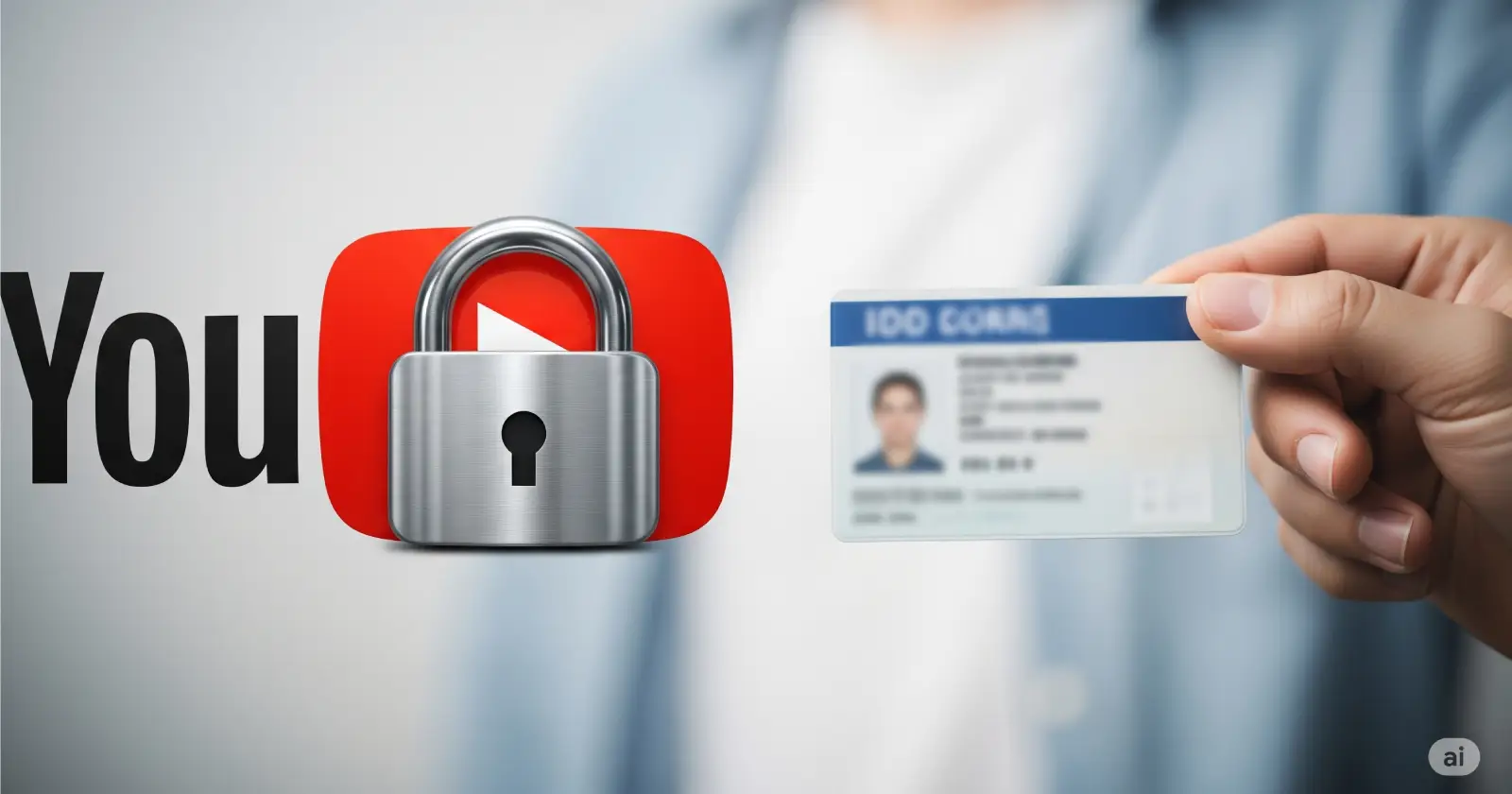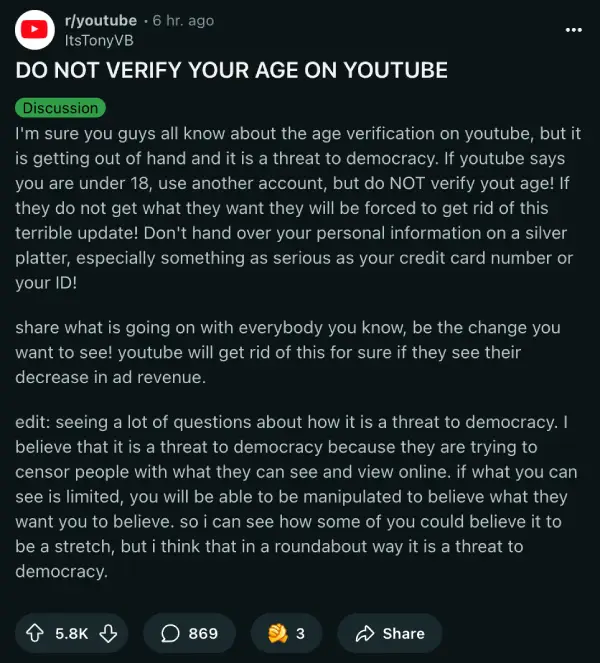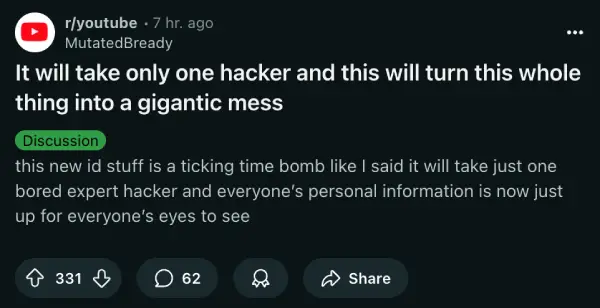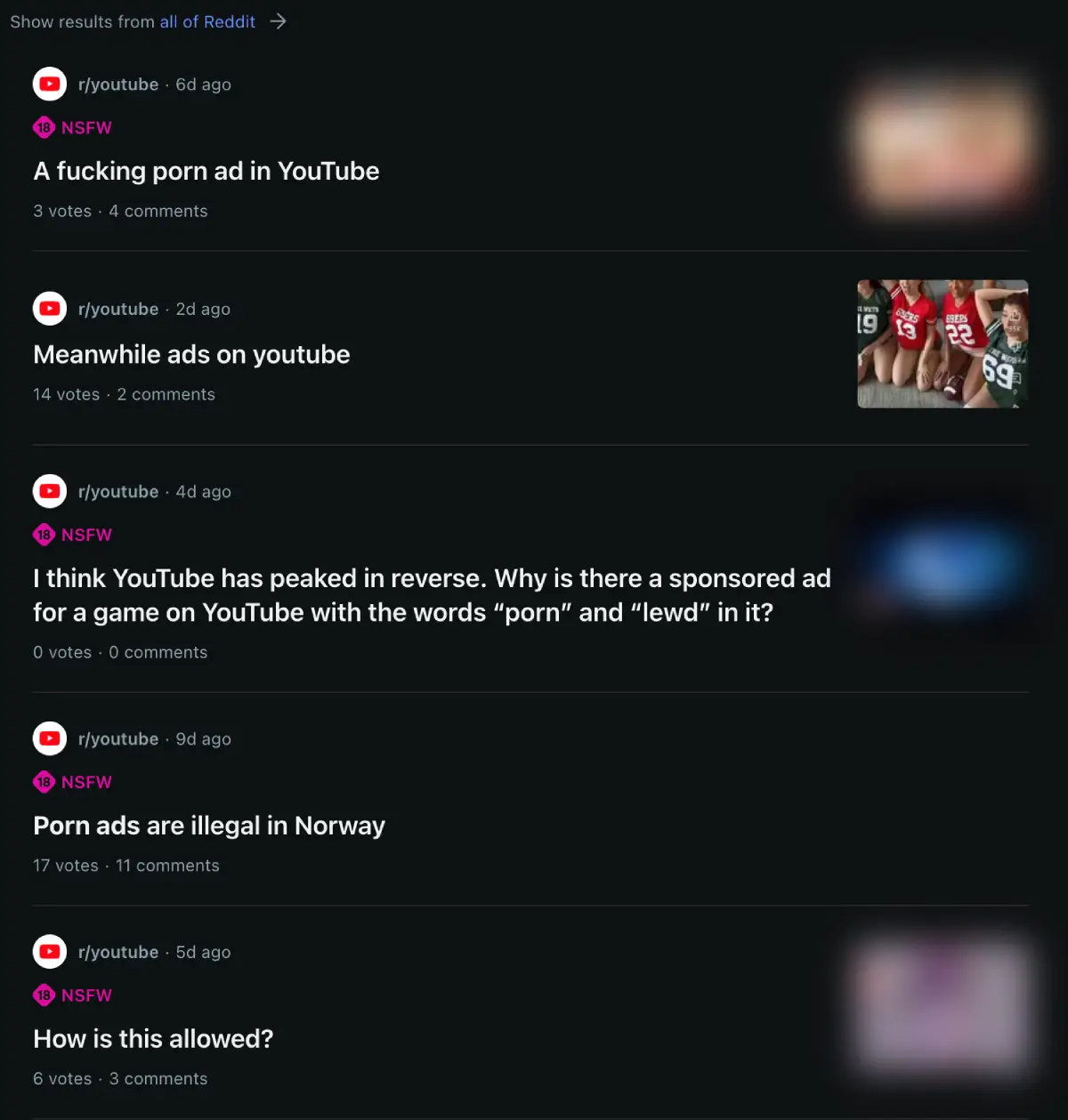In what many would consider an overreach, YouTube has now announced that it will be rolling out a new AI-powered age estimation model in the US to help identify teens on the platform and tailor the experience accordingly. This system won’t even consider your DOB that you may have entered previously. Instead, it will rely on signals like your YouTube activity and how long you’ve had your account for.
As with any AI system, there will inevitably be false positives. So YouTube has a backup plan, which involves three verification options: a government-issued ID, a selfie, or a credit card.
The rollout kicks off on August 13, and it’s aimed at making sure younger users get a safer space, with things like restricted access to mature content or personalized ads turned off if the AI flags you as under 18. But here’s where it gets tricky. The platform mentions that “no one is required to provide their ID to use YouTube,” but if the AI messes up and thinks you’re a kid when you’re not, skipping the verification could mean losing out on a ton of features. We’re talking no comments on videos, limited recommendations, or even blocked uploads if you’re a creator.
Scroll through Reddit, X or YouTube’s own help forum and you’ll find the same fear repeated in a hundred different ways: “If I watch too much anime or Minecraft, will the bot decide I’m a child?” YouTube says no single genre can tip the scale, but it also won’t spell out the exact recipe. Users are left imagining a black-box formula that weighs watch time, upload history, comment style and account age until it spits out a label that can shadow-ban you from half the site.
On Reddit, the top post in r/YouTube urges readers to “DO NOT VERIFY YOUR AGE” and instead cycle to a new account if they get flagged.
Another thread warns it will take “only one hacker and this whole thing turns into a gigantic mess.”
Those fears are not theoretical. Data breaches have already exposed user info at far smaller companies, just take the recent example of Tea. Handing over a driver’s license, credit card or biometric selfie to fix an AI mistake feels, to many, like handing the keys to identity thieves. Some users have even kick-started petitions against this that have racked up a few thousand signatures already. Others are even calling folks to boycott YouTube on August 13.
Creators are worried too. ChibiReviews, an anime commentator with a six-figure following, posted on X that the policy is “actually gross considering what YouTube is doing with this update that invades privacy.”
Furthermore, all this comes at the same time users are flooding Reddit with screenshots of borderline-pornographic ads slipping through YouTube’s filters. So, how could one trust the platform’s AI to estimate their age when, at the same time, YouTube can’t even figure out how to weed out vulgar ads?
YouTube counters that the model has worked “well” in other countries for some time and that the US is simply next in line. It also stresses that nothing changes for viewers who already told the site they’re under 18. Still, the opt-out path is fuzzy. Once the teen tag is applied, there is no stated timeline for re-evaluation unless you cough up documentation. For people without a government ID, minors who share devices with parents, or anyone who simply refuses to feed the data machine, the platform shrugs and keeps the training wheels on.
That said, similar age checks are rolling out in places like the UK and EU, where sites have to verify users for adult content, leading to VPN spikes and outright bans on some platforms. Even Australia made a U-turn on this promise to keep YouTube out of the social media ban for kids, and now, teens in the country will soon only have limited access to the platform.
Meanwhile, we’ve already seen how age estimation can easily get things wrong as X began cracking down on NSFW posts for teens in the UK. We will just have to wait and see how things go once this comes into play next week. Feel free to share your thoughts on this push for stricter moderation in the comments below.
TechIssuesToday primarily focuses on publishing 'breaking' or 'exclusive' tech news. This means, we are usually the first news website on the whole Internet to highlight the topics we cover daily. So far, our stories have been picked up by many mainstream technology publications like The Verge, Macrumors, Forbes, etc. To know more, head here.





